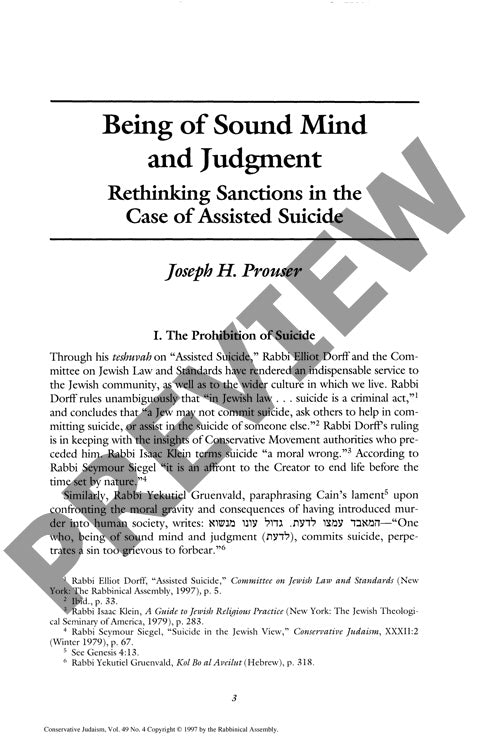Being of Sound Mind and Judgment Rethink
Couldn't load pickup availability
The ancient Jewish legal distinction between culpable and non-culpable suicide has profound implications for modern physician-assisted death. While traditional Jewish law presumes most suicides occur שלא לדעת (without sound judgment) and thus merit compassionate burial rather than sanctions, physician-assisted suicide fundamentally challenges this paradigm. Through analysis of classical rabbinic sources including Semahot, Mishneh Torah, and Shulhan Arukh, a clear framework emerges for determining when a suicide warrants communal penalties. The methodology combines textual examination of rabbinic literature, analysis of contemporary legal structures like Oregon's Death with Dignity Act, and comparative study of halakhic precedents. Key findings reveal that physician-assisted suicide uniquely satisfies all halakhic criteria for culpable suicide: verified mental competency, explicit statements of intent, and self-administered death. Unlike impulsive acts, the modern medical process requires sustained intent, multiple confirmations, and professional certification of mental competence—precisely the conditions that establish לדעת (sound judgment) under Jewish law. These legislative safeguards designed to legitimize physician-assisted death paradoxically create circumstances that render such acts halakhically culpable, warranting traditional communal sanctions. This analysis bridges ancient legal categories with contemporary medical ethics, offering new perspectives on how established religious frameworks intersect with evolving end-of-life practices.

More Information
-
Physical Description
-
Publication Information
Published 1997
ISBN
-
Publication Credits
Joseph Prouser

